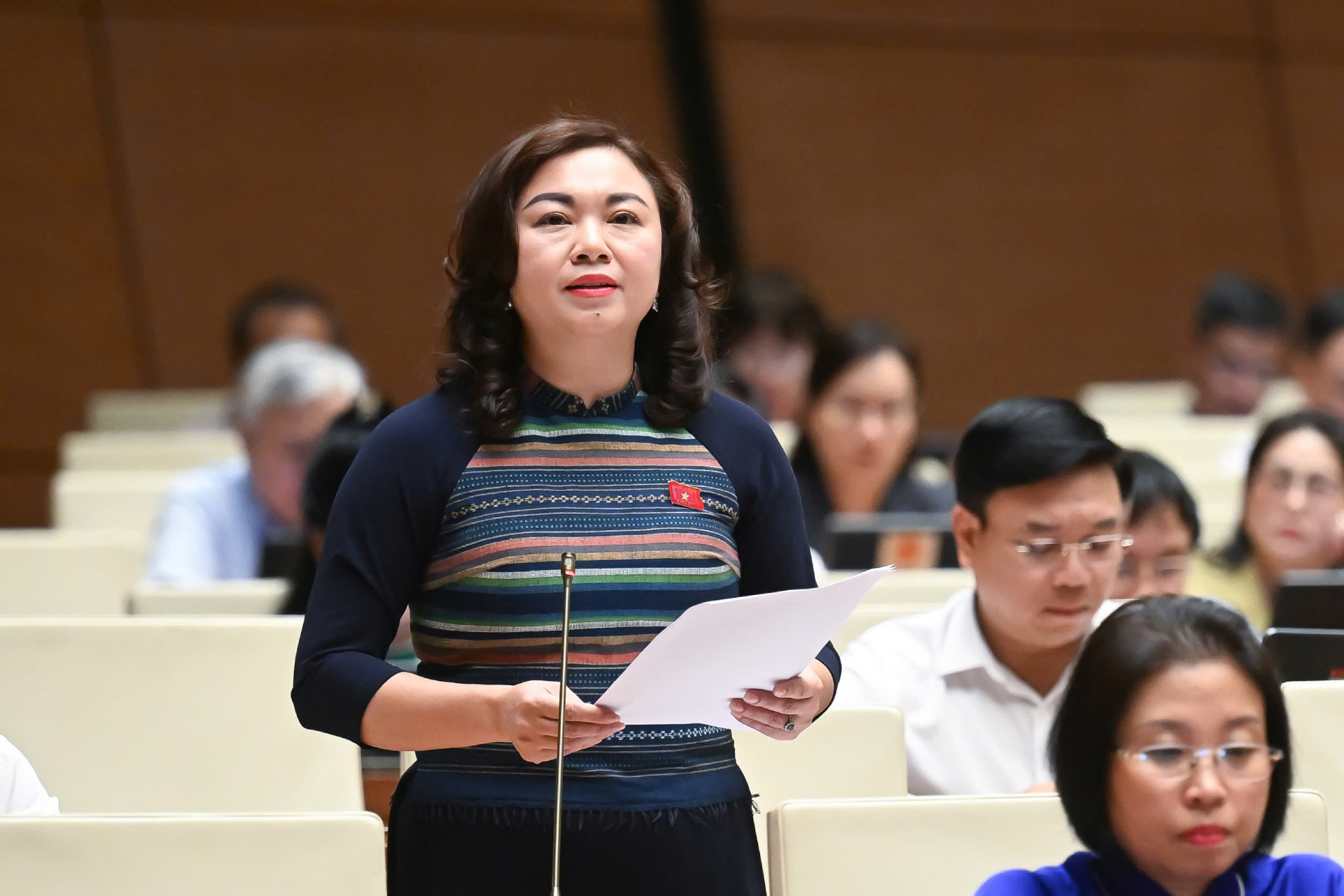
During the National Assembly’s discussion on socio-economic conditions and efforts to promote thrift and combat waste on June 18, many deputies said they were concerned about tge reorganization of public offices following the mergers.Canh said that it would be better to prioritize use of surplus offices for healthcare, education, libraries, parks, cultural, and sports facilities. He also suggested using some offices as public parking spaces.
“The demand for parking in urban areas is significant, while the land allocated for static traffic is insufficient. Many small smart parking facilities would be more effective than a few large parking lots, as people don’t want to park their vehicles far from their homes or workplaces,” he said.
In major cities worldwide, public parking facilities are built within walking distance, sometimes just a few hundred meters apart.
“It is now the right time to allocate a suitable number of surplus offices to build smart parking facilities, meeting the needs of residents and businesses, addressing violations in parking, and contributing to urban improvement. To accelerate the trend of using electric vehicles, developing charging stations quickly is essential,” Canh said.
Promoting a reading culture is also encouraged, but many people lack time for reading. Canh proposed that some offices converted into smart parking facilities should also include charging stations and mini-libraries with refreshment areas, providing residents with a space to read while waiting for their vehicles to charge.
The deputy said this model serves multiple purposes for residents and aligns with state policies. It could be implemented in the centers of newly established communes. Land lease policies for parking, charging, and library purposes should be prioritized over leasing for other services.
Surplus offices
Sharing similar concerns, Nguyen Quoc Luan from Yen Bai raised questions about the results of arranging and handling public properties, land, and assets of ministries, agencies, localities, and state-owned enterprises.
Luan cited government statistics as saying that as of December 2024, over 62,500 facilities had not yet been approved for rearrangement and handled by competent authorities.
“When we implement the arrangement and merger of provincial and commune-level administrative units, abolishing district levels, there will be a large number of surplus facilities, public land, and assets,” the Yen Bai deputy noted. More than 4,200 public offices are expected to be surplus.
Luan recommended that the government and ministries, agencies, and localities continue to issue directives on handling surplus public land and assets; review, amend, supplement, or issue new guidance documents; simplify procedures, and strongly decentralize authority to localities, agencies, and units for implementation.
Additionally, the deputy suggested review of all assets, facilities, and land previously held by ministries, central agencies, corporations, and state-owned companies that are unused or inefficiently used, and then transfer them to localities for management, use, or handling in accordance with the law to maximize public asset utilization and prevent loss and waste.
On the same topic, deputy Dang Bich Ngoc from Hoa Binh pointed out the current situation in localities where investment projects are going slowly, or have not been implemented. Many unfinished works and projects are prolonged or abandoned for a long time, causing frustration among voters and people.
“Public assets and surplus offices left abandoned without maintenance by agencies suffer severe damage and deterioration, remaining unused for long periods can be found in almost provinces and cities, creating social discontent, especially with surplus offices in major city centers,” the female deputy stated.
Ngoc cited a Ministry of Finance’s report as indicating that by the end of 2024, over 11,000 public land and property assets, primarily agency offices, schools, and health stations, remained unexploited or improperly handled. Moreover, with the upcoming implementation of two-tier local governance and provincial mergers, the number of surplus assets will continue to rise.
The Hoa Binh deputy recommended that the government conduct a comprehensive digital inventory of public assets from central to local levels, refine regulations to guide and organize the classification, conversion, auction, and effective handling of past and post-merger surplus public assets, and ensure consistent nationwide implementation.
Additionally, he recommended refining asset management regulations, implementing national target programs, strengthening oversight groups for the three national target programs.
And in the coming period, with the two-tier local governance system, decentralize project investment management and implementation, promptly supplement budget estimates to achieve program targets, maximize investment resources, and prevent waste and loss during implementation.
Tran Thuong